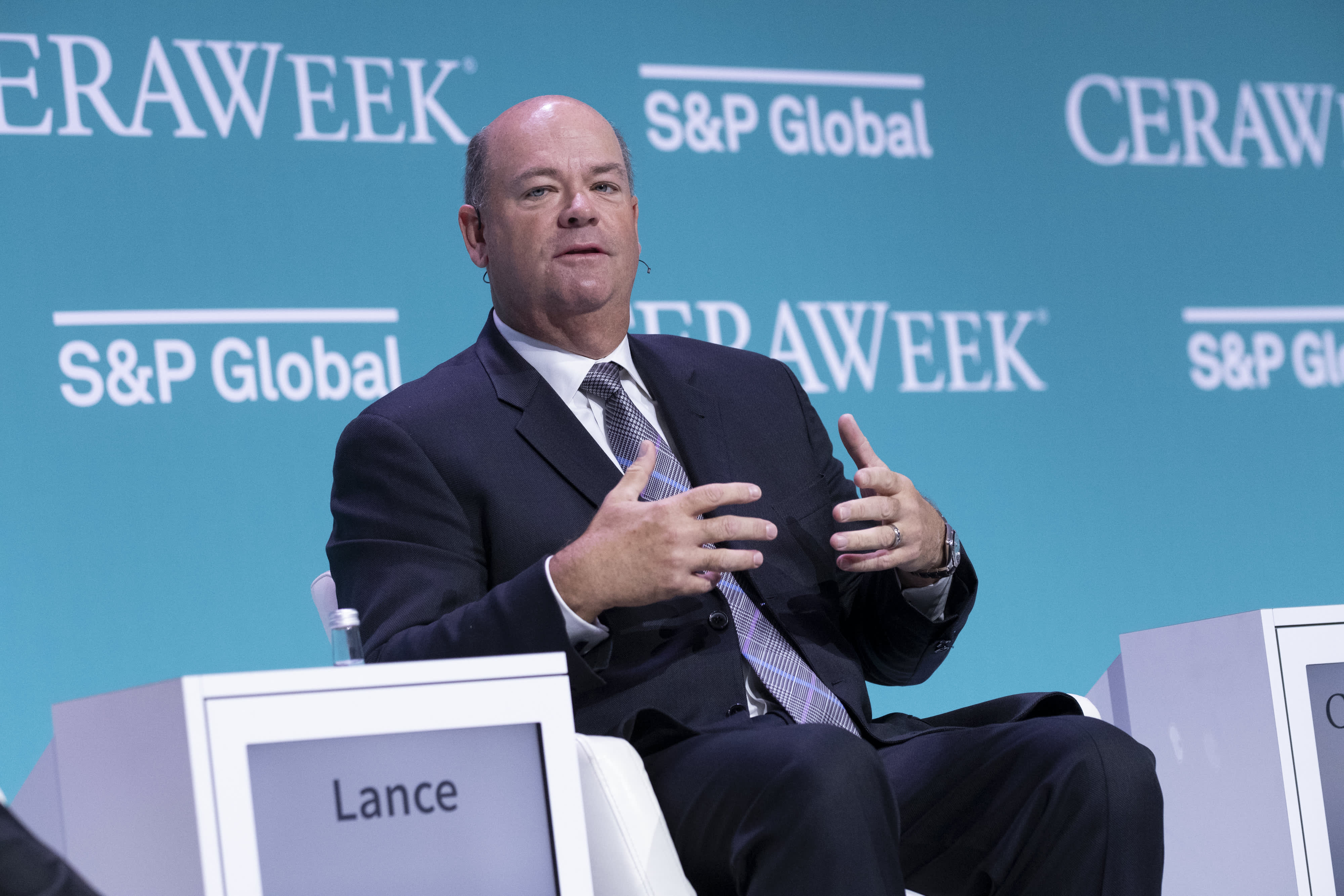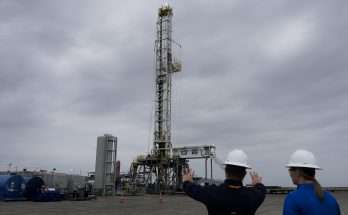
ConocoPhillips CEO Ryan Lance told CNBC on Tuesday that a decision now to start drilling for new oil will not bring immediate relief to the elevated prices seen around the globe.
Lance’s comments, made in an interview on “TechCheck,” come shortly after the President Joe Biden announced the U.S. was banning Russian oil imports in a time when fears of supply shortages have caused prices to surge to their highest levels since 2008.
The increasingly disciplined oil industry has faced some calls to hike production, in hopes that more drilling could alleviate the supply worries. But Lance said that is not an instant solution.
CNBC’s Brian Sullivan asked Lance how long it would take for ConocoPhillips to see the “first drop of new oil” from the ground if Lance called the company’s board Tuesday and said “let’s pump more oil, let’s go for it.”
“Eight to 12 months,” Lance said. “It’s not that quick. Again, that’s why we have to be thinking about the medium and longer term here to try to decide. We’re spending 20% more capital this year than we did last year. We’re going to grow our production this year over what we produced last year.”
Ryan Lance, chairman and chief executive officer of ConocoPhillips, speaks during the 2022 CERAWeek by S&P Global conference in Houston, Texas, U.S., on Tuesday, March 8, 2022.
F. Carter Smith | Bloomberg | Getty Images
ConocoPhillips could decide to put even more capital to work, the CEO said, adding the Houston-based exploration and production company “needs to make sure the returns are there.”
“We’re dealing with the same inflation and supply chain every other manufacturer is dealing with in the U.S.,” Lance said, echoing comments made earlier Tuesday by Occidental Petroleum CEO Vicki Hollub.
Speaking at CERAWeek by S&P Global, Hollub said the industry was “in a really dire situation.” She added, “We’ve never faced a scenario where we need to grow production, when actually supply chains not only in our industry but every industry in the world [are] being impacted by the pandemic.”
Lance, who’s led ConocoPhillips for the past decade, described some of that dire situation facing companies operating in the oil-rich Permian Basin in West Texas and southeastern New Mexico.
“You’re seeing double-digit inflation rates” across a range of commodities and categories, Lance said, including land, trucking and chemicals imported from Europe. “All those supply chain issues are impacting our ability.”
“The question is, the price is high enough to incentivize more capital to go in and grow, but we have to watch the returns,” Lance said. “We’re just like any other business. We’ve got to make sure the capital we spend generates an adequate return for our shareholders.”
Russian import ban
In the short term, Biden’s decision to ban Russian oil imports was “the rational thing” to do in response to the country’s invasion of Ukraine, Lance said. At the same time, Lance said it raises a number of medium- and long-term questions for the rest of the world, if many other nations also end up turning away Russian oil.
“That could have a huge impact on the system if a million or 2 million barrels a day are taken off the market,” he said, predicting oil prices would climb even higher than Tuesday’s levels around $124 per barrel for WTI crude and $128 for Brent crude, the international benchmark.
Loading chart…
Lance said calls to further tap into strategic petroleum reserves are sensible right now and could alleviate some pressure on the system for now.
“The longer term is really a question of, what are we doing to do for the next six month? What are we going to do for the next year?” Lance said. “Are we planning enough to say, what are the scenarios that could develop over that period of time and what are we going to do to ensure energy security as a country and as a globe?”
“Releases out of the [strategic petroleum reserve] for a month or two or three, they’ll help the short term and they’re necessary to do that, but they don’t answer this longer-term question.”


